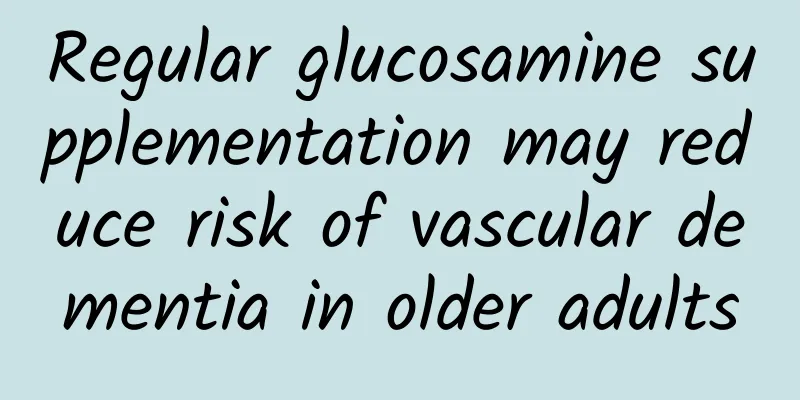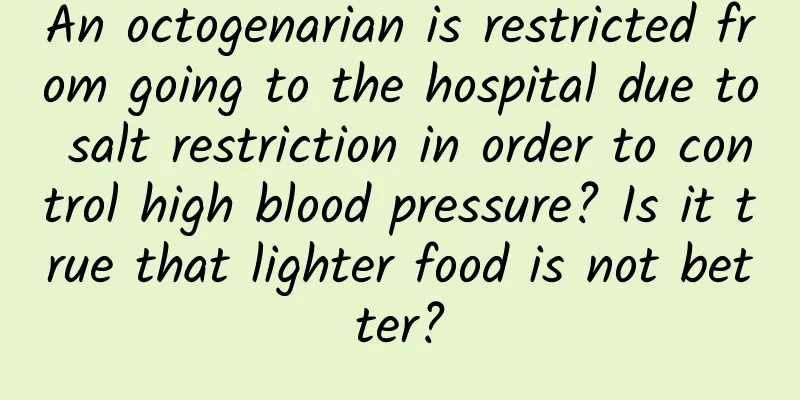Regular glucosamine supplementation may reduce risk of vascular dementia in older adults

|
In countries such as the UK and Australia, about 20% of the population chooses to take glucosamine supplements as a daily health product. Glucosamine is a commonly used non-vitamin, non-mineral dietary supplement. It is a natural amino monosaccharide that is widely used to relieve osteoarthritis and joint pain. Glucosamine has a relatively high safety and potential anti-inflammatory effect. Recent studies have shown that glucosamine use may be associated with better cognitive function. However, the relationship between glucosamine use and dementia risk is unclear, and no study has systematically evaluated the modifying effects of apolipoprotein E (APOE) gene polymorphisms, baseline cognitive function, and other nutrient supplements on this association. Based on this, Professor Qin Xianhui's team at the National Clinical Research Center for Kidney Diseases of Southern Hospital conducted relevant research. The study found that regardless of APOE genotype and baseline cognitive function, regular glucosamine supplementation was significantly negatively correlated with the occurrence of vascular dementia in the elderly population. The study was published in the journal Alzheimer's Research & Therapy , with Dr. Zhou Chun as the first author and Professor Qin Xianhui as the corresponding author. This prospective cohort study based on the UK Biobank database included more than 210,000 elderly people aged 60 and above who had no history of dementia at baseline. The average age was 64 years, 53% were women, and 24.6% of the participants reported regular use of glucosamine supplements. After 12 years of follow-up, 1,039 cases of vascular dementia, 1,774 cases of Alzheimer's disease, and 122 cases of frontotemporal dementia occurred among the participants. The analysis found that compared with participants who did not regularly supplement with glucosamine, participants who regularly supplemented with glucosamine had a significantly reduced risk of vascular dementia by 18%, but glucosamine supplementation had no significant effect on the risk of Alzheimer's disease and frontotemporal dementia. In people who used calcium supplements and did not use zinc supplements, regular glucosamine supplementation had a stronger negative correlation with the risk of vascular dementia. However, regardless of APOE genotype and baseline cognitive function, regular glucosamine supplementation showed a similar significant negative correlation with the risk of vascular dementia. (The picture comes from the Internet, the copyright belongs to the original author) Overall, this prospective, large-scale study of older adults suggests that regular glucosamine supplementation may be a simple, feasible strategy for preventing vascular dementia in the elderly population. References: Zhou C, Zhang Y, Yang S, Ye Z, Wu Q, Liu M, He P, Zhang Y, Qin X. Habitual glucosamine use, APOE genotypes, and risk of incident cause-specific dementia in the older population. Alzheimers Res Ther. 2023 Sep 9;15(1):152. Editor | Zhou Chunxianghao Audit | Qin Xianhui |
<<: The cause of miscarriage turned out to be this
>>: Rumor debunked: If you eat “photosensitive foods”, your sun protection efforts may be in vain?
Recommend
How to distinguish blood clots and gestational sacs
Sometimes when we are pregnant, due to various re...
Is surgery necessary for uterine cysts?
The cervix is an important organ of women. Cerv...
36 weeks pregnant back pain
As a woman's pregnancy progresses, the baby g...
Is acute fungal vaginitis serious?
Female patients suffering from candidal vaginitis...
What causes vaginal bleeding after menopause?
After menopause, women generally do not have vagi...
The reaction of taking contraceptive pills successfully_How to see the success of contraception after taking contraceptive pills
I believe that many newlyweds have a lot of contr...
Is sleepwalking a dream? Why do we sleepwalk while we are asleep?
When it comes to sleepwalking, you might think of...
Bleeding during pregnancy
Bleeding from the lower body during pregnancy is ...
Should the cola chicken wings be cooked over high heat or low heat? What kind of fire should be used to cook the cola chicken wings?
We all know that chicken wings are a popular food...
Prevention of postpartum vulvar itching
I believe that female friends are no strangers to...
What is the ice hockey puck made of? What shape is the ice hockey puck?
Ice hockey is a combination of skating and hockey...
What to do if a woman has vaginal cysts
With the increasing incidence of female diseases ...
23 days of menstrual cycle leads to rapid aging
A 23-day menstrual cycle will not cause skin agin...
How much damage does uterine curettage do to the uterus?
Abortion is a way of terminating pregnancy that w...
What is good for shrinking pores?
If you have large pores, you will feel very infer...









